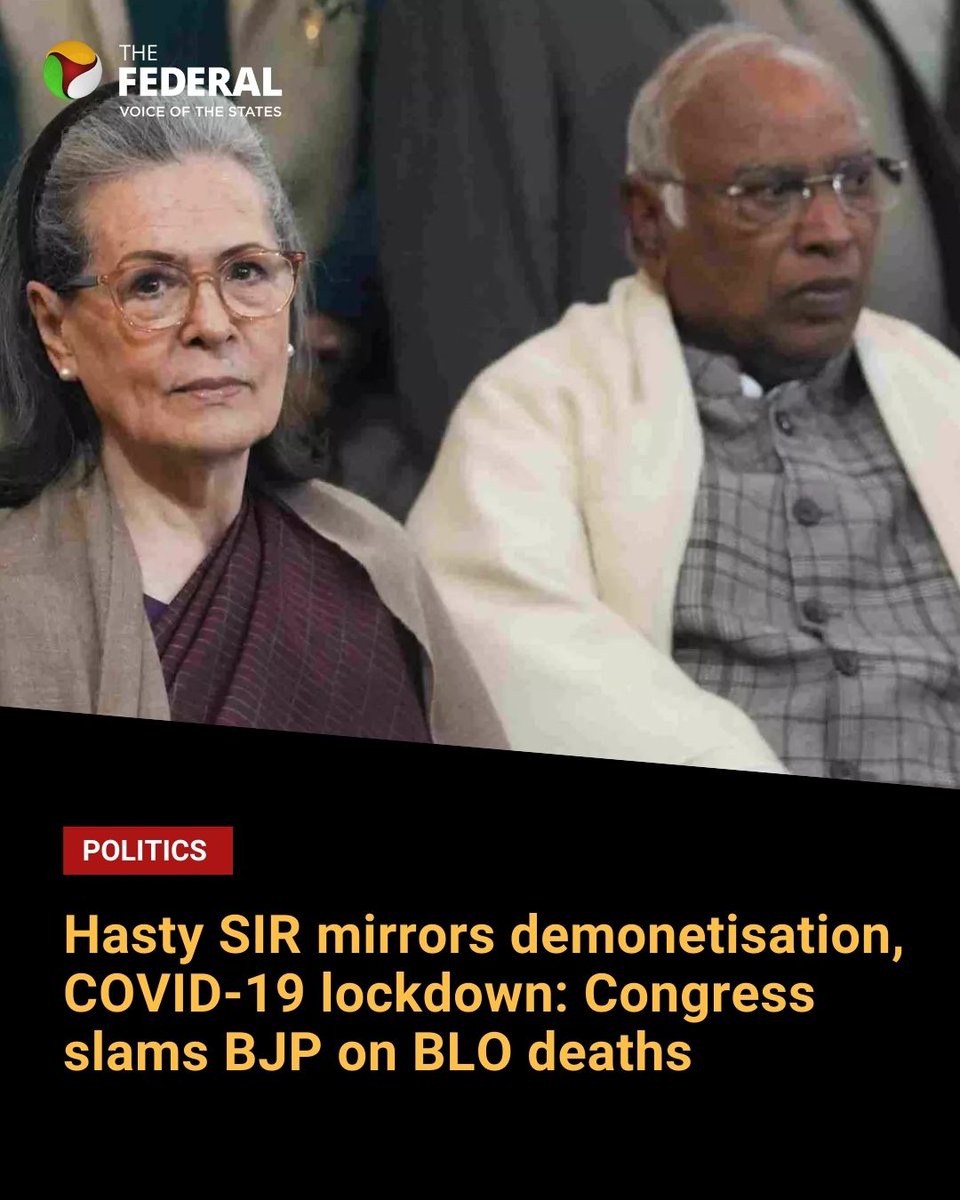
Kharge said the SIR campaign was being executed in twelve states and Union territories under tight deadlines and with excessive workload imposed on BLOs and polling staff. He described the process as “hasty, forced” and likened its roll-out to earlier national disruptions such as demonetisation and the COVID-lockdown, suggesting similar flaws of planning and execution. He wrote in a post: “The BJP’s vote theft has now taken a deadly turn. Overburdened with workload, BLOs and Polling Officers are being driven to suicide.”
The opposition’s focus on the SIR process grew after an officer in Krishnanagar, West Bengal, aged 51, died by suicide saying she was overwhelmed by online data-upload tasks and felt unsupported by supervisors. Her handwritten note reportedly blamed the Election Commission for her “inhuman work pressure.” Meanwhile, in Kerala’s Kannur district, the death of another BLO triggered similar claims of coercion and excessive workload tied to SIR and local-body election duties.
Kharge argued that the number of deaths was likely greater than official figures, citing ground reports of mental stress, long hours, field-visits and onerous targets. He alleged that the drive was essentially being used for electoral advantage rather than genuine roll-cleaning, saying: “Abusing power to force institutions into suicides, tearing the Constitution to shreds, and weakening democracy, this is the consequence of the BJP’s hunger for power.”
The Election Commission has not publicly accepted a direct causal link between SIR duties and the deaths but has said investigations are underway at district and state levels. West Bengal Governor C. V. Ananda Bose urged caution and said that the situation would be examined in detail. On the ground, BLOs in districts such as Noida and Nadia reported long hours, heavy workloads and mental fatigue. In Noida some teachers deputed as BLOs have resigned citing inability to cope.
The BJP dismissed opposition allegations, with party representatives saying that there is no established proof linking the deaths to SIR work and calling the charges politically motivated. They noted that the BLOs’ responsibilities include multiple tasks, not only SIR, and that the state governments bear primary responsibility for welfare of field-staff.
Experts in electoral governance highlight that while rapid revision of electoral rolls can help in updating voter registries, compressing a multi-stage process into a few weeks—covering house-to-house verification, form collection, data entry and upload—can strain under-resourced local officials. They warn that negligence of digital training, unclear timelines or excessive targets can undermine the integrity of the exercise and create worker health risks. In this instance, the combination of physical fieldwork, digital uploads and election-deadline pressure appears to have exposed systemic gaps.
Public sentiment on this issue is sharply divided. Some view the SIR effort as an administrative necessity for clean electoral rolls ahead of significant elections, while others see it as a tool of electoral engineering, using workloads and deadlines to suppress or manipulate voter participation. Kharge’s framing places it firmly in the latter camp, alleging that the deaths signify a collapse of democratic safeguards rather than mere operational lapses.
With the SIR exercise stretching across critical states and union territories in the lead-up to major elections, this controversy emerges at a politically sensitive moment. The welfare of thousands of BLOs—many working long hours, in difficult terrain and with digital expectations—has taken centre-stage. Kharge has called for immediate suspension of the drive until worker protection mechanisms are in place, and for an independent inquiry into each death. The Election Commission and government authorities face mounting pressure to provide transparent data on workloads, completion targets, mental-health supports and the criteria used to assign field-staff.
As the debate intensifies, focus is shifting beyond the headline figure of sixteen deaths to broader questions of election-administration design, accountability for field-staff welfare and the balance between rapid roll-out and sustainable process. The next days will be decisive in whether the SIR exercise can continue with reforms or stalls under political scrutiny.
